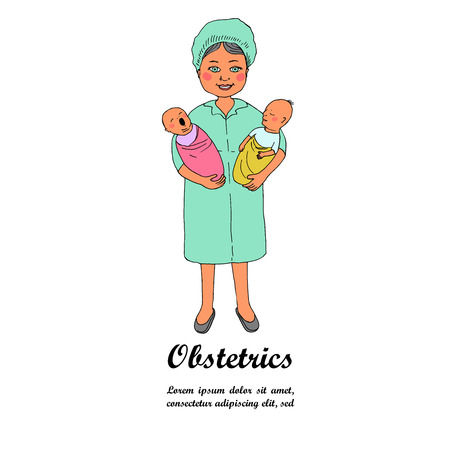Introduction to Antenatal Care in the UK
Antenatal care, sometimes referred to as prenatal care, is a cornerstone of maternity services in the United Kingdom. Provided through the NHS, antenatal care encompasses a range of health services and support designed to ensure the wellbeing of both expectant mothers and their babies throughout pregnancy. From the early stages of conception until birth, antenatal care aims to monitor maternal health, promote healthy fetal development, and identify any potential complications at an early stage.
In the UK, antenatal care is universally accessible and is offered free of charge under the NHS. These services include regular check-ups with midwives or obstetricians, screening tests, ultrasound scans, and access to educational resources. The importance of antenatal care cannot be overstated—it plays a vital role in reducing pregnancy-related risks, preparing women for labour and birth, and supporting families as they transition into parenthood.
Key Benefits of Antenatal Care on the NHS:
| Benefit | Description |
|---|---|
| Early Detection | Identifies health concerns for mother and baby early on |
| Health Monitoring | Regular checks for blood pressure, growth, and overall wellbeing |
| Education & Support | Provides information on nutrition, lifestyle, and birth preparation |
| Mental Health Support | Access to mental health resources during pregnancy |
| Continuity of Care | Ensures ongoing support from a dedicated maternity team |
Understanding what antenatal care involves and why it is essential allows expectant mothers to make informed choices about their pregnancy journey. The following sections will explore the full range of NHS antenatal services available across the UK, guiding you through every step from your first appointment to postnatal support.
2. Booking Your First Antenatal Appointment
Arranging your first antenatal (also called ‘booking’) appointment with the NHS is an important step in your pregnancy journey. This initial meeting allows you to register for maternity care, meet your healthcare team, and start planning for a healthy pregnancy. Here’s a step-by-step guide tailored for expectant mothers in the UK.
Step-by-Step Guide to Arranging Your Booking Appointment
- Contact Your GP Surgery: As soon as you find out you are pregnant, phone your local GP surgery. You can self-refer directly to your local NHS maternity service in some areas—check your NHS Trust’s website for details.
- Provide Basic Information: The receptionist or online form will ask for personal details, your estimated due date (if known), and any relevant medical history.
- Receive Confirmation: You’ll be given a date and time for your booking appointment, typically between 8–10 weeks of pregnancy.
- Prepare for Your Appointment: Gather necessary information such as your NHS number, details of past pregnancies, medical history, and any medications you’re taking.
Who Will You Meet?
Your first appointment is usually with a community midwife. In certain situations, you may also meet a GP or obstetrician if there are specific health concerns.
| Healthcare Professional | Role at First Appointment |
|---|---|
| Midwife | Main contact throughout pregnancy; provides antenatal checks, advice, and support |
| GP | May review overall health or pre-existing conditions if required |
| Obstetrician | Consulted if there are higher risk factors identified early on |
What to Prepare Beforehand?
- Your NHS number (if available)
- A list of current medications and supplements
- Details about previous pregnancies or births
- Your own and your partner’s family medical histories (e.g., inherited conditions)
- Date of last menstrual period (to help estimate your due date)
- Any questions or concerns you wish to discuss
What Happens at the Appointment?
The midwife will take a comprehensive medical history, discuss lifestyle factors, arrange initial blood tests and urine samples, offer screening options, and provide information on healthy pregnancy habits. They will also explain how further antenatal appointments will be scheduled and answer any initial questions you may have.

3. Routine Antenatal Checks and Screenings
Throughout your pregnancy, the NHS offers a structured programme of routine checks and screenings to monitor both maternal and baby’s health. These appointments are carried out by midwives or doctors, ensuring early identification of any potential concerns and providing you with ongoing support. Below is an overview of the key checks, blood tests, scans, and screening services you can expect during your antenatal journey in the UK.
Standard NHS Antenatal Checks
| Gestational Age | Main Check or Test | Purpose |
|---|---|---|
| 8–12 weeks (Booking appointment) | Initial health assessment, blood pressure, urine test, blood tests | Establish baseline health, identify risk factors, confirm pregnancy dates |
| 10–14 weeks | Dating scan (ultrasound), combined screening for Down’s syndrome | Check baby’s development, estimate due date, screen for chromosomal conditions |
| 16 weeks | Antenatal check-up, review results, measure blood pressure & urine | Monitor maternal health, discuss any concerns |
| 18–21 weeks | Anomaly scan (ultrasound) | Check baby’s physical development and identify structural anomalies |
| 25, 28, 31, 34, 36, 38 & 40 weeks* | Bump measurement, blood pressure & urine test; additional blood tests at 28 weeks | Track baby’s growth and position; monitor for gestational diabetes and anaemia |
*Appointment schedule may differ for first-time mums and those with medical needs.
Key Blood Tests Offered
- Blood group and Rhesus factor: Ensures compatibility in case of transfusion needs.
- Full blood count: Checks for anaemia or infection.
- Sickle cell and thalassaemia screening: Particularly for those from at-risk backgrounds.
- Infection screening: HIV, hepatitis B, syphilis – important for early detection and management.
Prenatal Screening Programmes
- Combined test (nuchal translucency scan + blood test) between 10–14 weeks for Down’s syndrome, Edwards’ syndrome and Patau’s syndrome.
- Anomaly scan at 18–21 weeks to assess baby’s anatomy in detail.
Your midwife will guide you through each stage and explain what each check involves. All tests and screenings are optional but highly recommended as part of comprehensive NHS maternity care in the UK. If any issues arise during routine checks or screenings, you’ll be referred promptly for further assessment or specialist support.
4. Specialist Support and Additional Services
During your pregnancy, you may have specific needs that require extra support beyond standard antenatal appointments. The NHS offers a range of specialist services designed to provide tailored care for women with complex health concerns, multiple pregnancies, or unique circumstances. Your midwife or GP will help coordinate referrals and ensure you receive appropriate support throughout your pregnancy journey.
Specialist Clinics for Complex Needs
If you have pre-existing medical conditions such as diabetes, epilepsy, high blood pressure, or heart problems, you may be referred to a consultant-led antenatal clinic. These clinics bring together multidisciplinary teams—such as obstetricians, specialist midwives, and other healthcare professionals—to monitor your health and adapt your care plan accordingly.
Support for Multiple Pregnancies
Mothers expecting twins, triplets or more will be offered additional scans and check-ups to closely monitor both their health and the development of each baby. You’ll also have increased access to specialist advice regarding nutrition, rest, and birth planning. Extra antenatal classes focused on multiple births are often available through your local NHS Trust.
Overview of Specialist Support Services
| Type of Support | Who Its For | What’s Included |
|---|---|---|
| Pre-existing Medical Condition Clinics | Mothers with chronic health conditions | Regular monitoring, medication management, consultant reviews |
| Multiple Pregnancy Support | Mothers expecting twins or more | Extra scans, specialist midwife input, tailored birth planning |
| Mental Health Services | Mothers experiencing anxiety, depression or emotional difficulties | Counselling, perinatal mental health team support, peer groups |
| Substance Misuse Services | Mothers needing support with alcohol or drug use | Specialist clinics, harm reduction advice, safeguarding support |
| Teenage Pregnancy Services | Young mothers under 20 years old | Dedicating young parent midwives, practical advice, social support networks |
| Refugee & Asylum Seeker Support | Mothers new to the UK or facing language barriers | Interpreting services, cultural support workers, community outreach teams |
| Fetal Medicine Units (FMU) | Mothers with babies diagnosed with complications in utero | Advanced ultrasound scanning, genetic counselling, bespoke care plans |
Your care pathway will be personalised based on your individual health needs. If at any point during your pregnancy you feel additional support is required—whether physical, emotional or social—do not hesitate to discuss this with your midwife or GP. The NHS is committed to ensuring every mother receives the right level of care and support throughout their pregnancy.
5. Your Antenatal Care Team
During your pregnancy journey with the NHS, you will be supported by a dedicated multidisciplinary team. Each professional plays a vital role in ensuring both your health and your baby’s wellbeing throughout antenatal care. Understanding who is involved and what their responsibilities are can help you feel confident and informed during every step of your pregnancy.
The Key Members of Your NHS Antenatal Team
Role |
Main Responsibilities |
When You May See Them |
|---|---|---|
| Midwife | Your main point of contact for antenatal care; performs routine checks, offers advice, organises scans, and supports you through birth planning. | Throughout pregnancy, labour, and postnatal period |
| GP (General Practitioner) | Provides general medical support, manages pre-existing conditions, and refers you to specialist services if needed. | At initial booking appointment or for non-routine concerns |
| Consultant Obstetrician | A specialist doctor who manages high-risk pregnancies or any complications that may arise. | If you have specific medical conditions or complex needs |
| Health Visitor | Offers advice on infant health, feeding, and development; visits after birth to support you at home. | From late pregnancy through the early weeks after birth |
| Maternity Support Worker | Assists midwives in providing practical support and information during appointments or classes. | During antenatal classes and hospital visits as needed |
How Your Team Works Together
Your NHS antenatal care team communicates closely to provide seamless support tailored to your individual needs. For example, your midwife will coordinate with your GP if there are any concerns about your general health, while a consultant may join your care plan if extra expertise is required. Health visitors ensure continued support as you transition from pregnancy to early parenthood. This collaborative approach ensures holistic care for both mother and baby.
6. Accessing Resources and Support Networks
Receiving antenatal care on the NHS is not just about medical appointments—it also involves supporting your emotional wellbeing and connecting you with resources to help you feel empowered during pregnancy. The NHS, along with local community services across the UK, offers a variety of resources designed to provide holistic support for expectant parents.
Resources for Emotional Wellbeing
It’s completely natural to experience a range of emotions during pregnancy. The NHS provides access to mental health midwives, perinatal mental health teams, and confidential counselling services if you’re feeling anxious or low. You can speak to your midwife or GP for referrals to these services. Many areas also offer self-referral options for talking therapies through the Improving Access to Psychological Therapies (IAPT) programme.
Group Classes and Workshops
Antenatal classes are widely available through NHS trusts, children’s centres, and local charities. These classes cover topics such as labour preparation, infant feeding, newborn care, and relaxation techniques. They are an excellent way to learn practical skills and meet other expectant parents in your area.
| Type of Class | Description | How to Access |
|---|---|---|
| NHS Antenatal Classes | Free group sessions covering pregnancy, birth, and early parenting. | Ask your midwife or book online via your local NHS trust. |
| Parentcraft Sessions | Focus on labour, delivery options, and postnatal recovery. | Usually offered at hospitals or community centres—details from your midwife. |
| Breastfeeding Workshops | Guidance on breastfeeding techniques and support networks. | Book through your maternity unit or health visitor service. |
| Mental Health Support Groups | Prenatal groups for those experiencing anxiety or depression. | Referral by midwife/GP or self-refer via IAPT website. |
Peer Support Networks
The sense of community is highly valued in the UK. Peer support groups—often facilitated by charities like NCT (National Childbirth Trust), Home-Start, and local family hubs—allow you to share experiences with other expectant parents. These groups may meet in person or virtually, providing a welcoming space for advice and encouragement throughout your pregnancy journey.
Finding Local Services
Your midwife or GP can provide information about what’s available locally. Additionally, NHS websites and local council directories list details of antenatal classes, mental health resources, and parent support groups in your area. Don’t hesitate to ask at your GP surgery or children’s centre for leaflets or contact details—support is always close at hand on the NHS in the UK.

